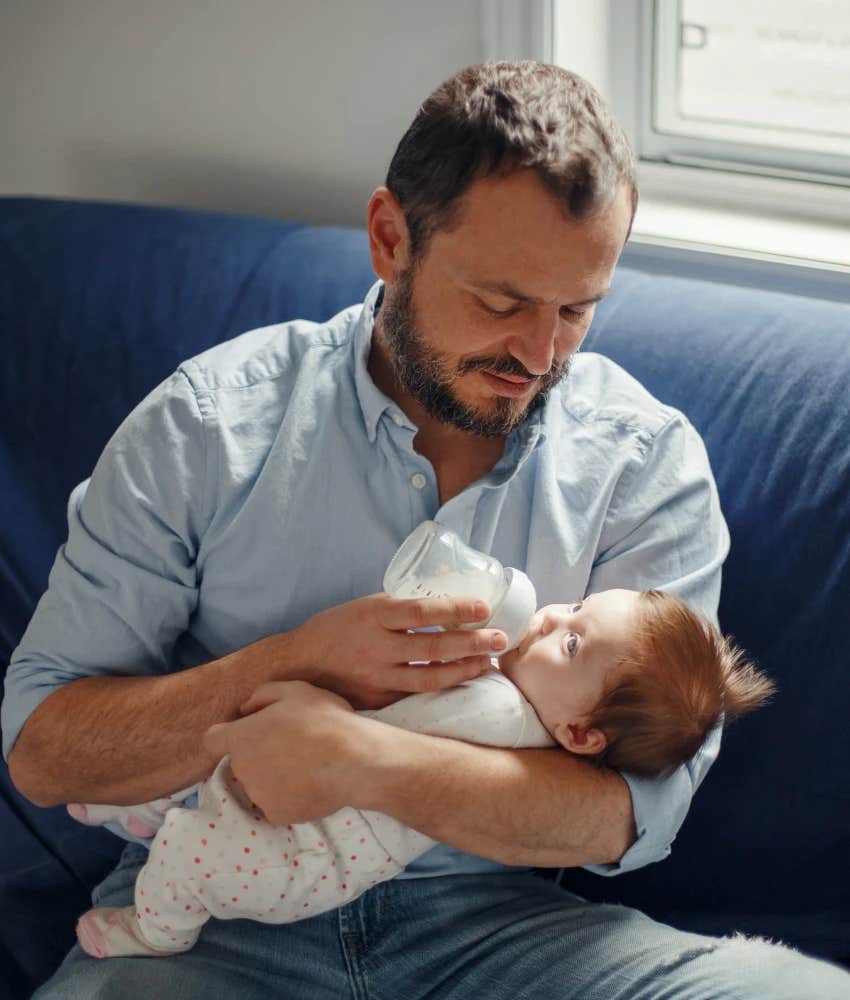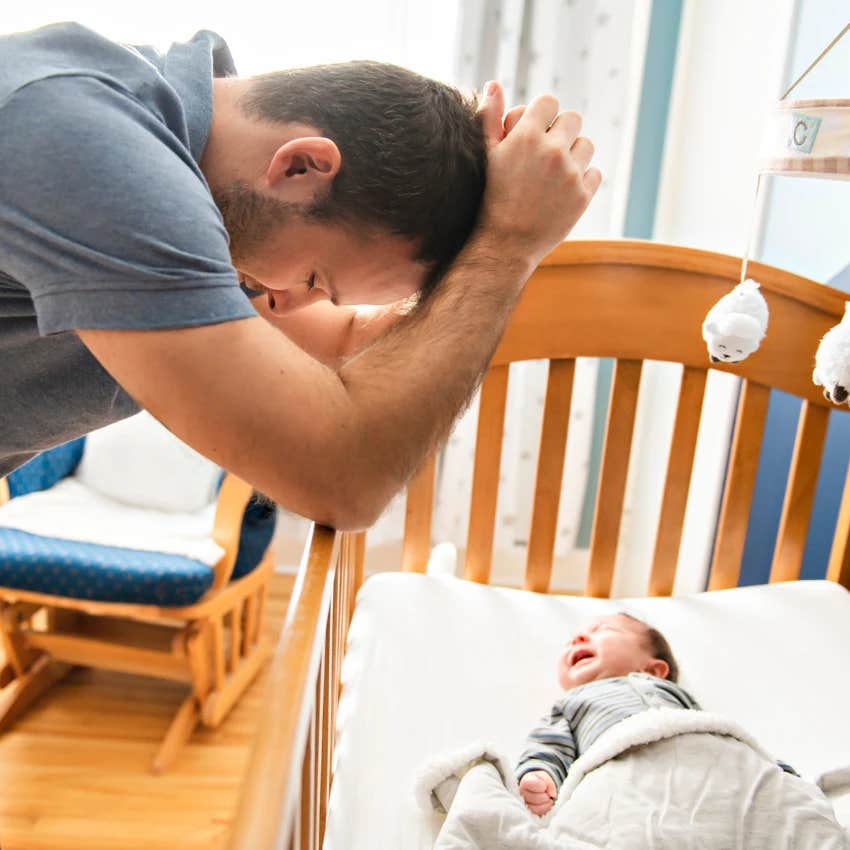The role of the primary parent falls most often to moms, at least when looking at straight, two-parent households.
In the U.S., the cultural mindset around parenting has shifted toward a more equitable balance. Yet shifts in attitude don’t automatically lead to changes being put into action, which may be why so many moms still feel as though they carry the brunt of the weight when it comes to caregiving.
For fathers, spending more hands-on time with their babies leads to a shift in how they view parenting overall.
A study revealed that dads who take paternity leave want fewer children in the future.
The 2019 study was conducted in Spain, as researchers looked at varying reasons for the country’s low fertility rates.
From 1999 on, Spain granted new moms six weeks of maternity leave at full pay and two days of paid leave for dads. Families were also granted 10 additional weeks of leave that could be taken by either parent or split between moms and dads.
Unsurprisingly, very few fathers used that parental leave, which means that moms were the ones acting as primary caregivers in those tender and intense first months of a baby’s life.
In 2007, Spain introduced two weeks of paid paternity leave, giving fathers uninterrupted time with their newborns.
The study found that when dads took paternity leave, it led to delays in future pregnancies. Parents who took advantage of Spain’s new paternity leave policy took longer to have a second child.
 Anna Kraynova | Shutterstock
Anna Kraynova | Shutterstock
The researchers, Lidia Farre and Libertad Gonzalez, believed that there were various factors at play when it came to couples having fewer children.
As dads were given time off to spend with their babies, many moms re-entered the workforce earlier than they otherwise would have. It’s possible that the extra support from their spouses allowed those moms to focus on their careers as much as their families.
The results could signify that giving dads uninterrupted time as caregivers showed them how hard it is to take care of a baby.
Gonzalez believed that their trial-by-fire introduction into fatherhood could have led the dads to reconsider growing their family in the future, saying, “Dads are learning about how hard it is to take care of a child, and this new information is affecting their preferences for how many children they want to have in total.”
 Lopolo | Shutterstock
Lopolo | Shutterstock
The study noted that the positive effects of paid paternity leave tend to ripple outward, extending past infancy into childhood. Dads who take more parental leave are more involved in their kids’ activities later on in childhood and work fewer hours overall.
Parenting isn’t instinctive; it’s a learning process. When fathers are required to be just as involved as mothers, they gain a fuller understanding of just how hard it is to soothe a crying baby or change an infinite amount of diapers in a day.
We all learn from experience. If men aren’t required to be caregivers in the same way that women are, then any change to the division of household labor will be slow to arrive. Yet, as this study reveals, when equal time is provided, equal care can be given, benefiting the whole family.
Alexandra Blogier is a writer on YourTango’s news and entertainment team. She covers social issues, pop culture and all things to do with the entertainment industry.

